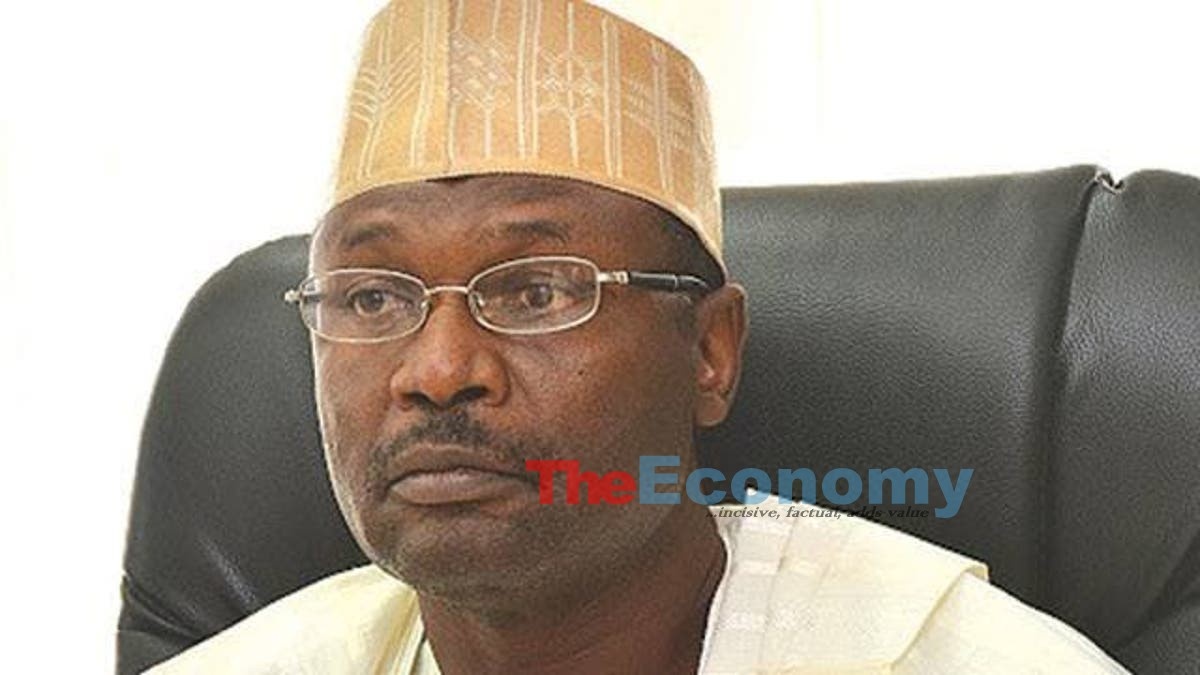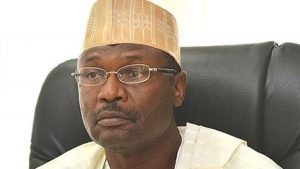The failure of politicians to fulfil campaign promises contributes to the low turn out of voters during elections, the former National Chairman of the Independent National Electoral Commission (INEC), Mahmood Yakubu, has said.
Mr Yakubu said people no longer trust politicians and are tired of hearing the same promises during electioneering campaigns, so they stay home during elections.
Mr Yakubu made this comment on Thursday when he appeared before the Senate Committee on INEC for screening for his second tenure.
The screening comes barely three days after the Senate received President Muhammadu Buhari’s letter seeking confirmation of his appointment as chairman of the commission for a second and final term.
During the screening, the former INEC boss who was asked the reasons for low voters turnout, highlighted several factors including inadequate mobilisation of voters, violence and failed promises by elected officials.
“Violence or threat of violence, people don’t tend to vote simply for that fear. Some people just stay on the side of caution by staying away instead of risking it by going out to vote.
“Sometimes, the performance of those elected is a very important factor. Some voters will ask ‘why should I go and vote? Because four years earlier some people made the same promise so nothing has changed.’
“It is a shared responsibility that we all have to put our heads together to solve but we will continue to do what is required by the law in the area of voter registration and publicity,” he said.
He said encouraging voters to turn out is an important function that is supposed to be discharged particularly by political parties and agencies like the National Orientation Agency.
Since 2003, Nigeria has witnessed a consecutive decline in voter turnout in national elections, data from the International Institute for Democracy and Electoral Assistance (IDEA) showed.
PREMIUM TIMES reported that after an initial increase between 1999 and 2003, participation in subsequent elections has continued to decline, first to 57 per cent in 2007, then to 54 per cent in 2011, before dropping to 44 per cent in 2015.
This would further plummet in the 2019 presidential election as only 34.75 per cent of registered voters actually voted, data from INEC showed.
The voter turnout also differed by states, with less than 20 per cent voting in Lagos, Nigeria’s commercial centre.
CONNIVANCE
On Thursday, Mr Yakubu also said there was a possibility that INEC officials connive to remove political parties from ballot boxes,
This was in reaction to a question by a lawmaker on the matter.
“I have no evidence at present that INEC officials connive with whoever to deliberately exclude political parties from the ballot but it can happen. The system is essentially manual but we are trying our best to make it digital,” he said.
For Mr Yakubu, one of the most difficult challenges he had in his first term was postponing the 2019 general elections by a week.
“It was really a painful decision for the commission to take. We are learning from that experience and we are working very hard to ensure that this kind of experience does not happen again,” he said.
ADVERTISEMENT
He hoped that the commission, in the next few years, would consolidate to the extent “that Nigerians can vote and go home confident that their vote will count and only their votes will determine who will eventually win the election.”
Plans for future elections
For the success of future elections, he said INEC would try to get the required materials ahead of the polls.
“What we intend to do this time around is that things that we require for the election we shouldn’t wait until the election year. There are some critical aspects of our work that have to be concluded next year. We just have to find the resources to do so.
“We have to undertake 1508 activities in 814 days for us to deliver in the 2023 general elections. We have only two years, two months and two weeks.”
This is even as he appealed for the construction of 37 strong rooms across the country to store electoral materials.



